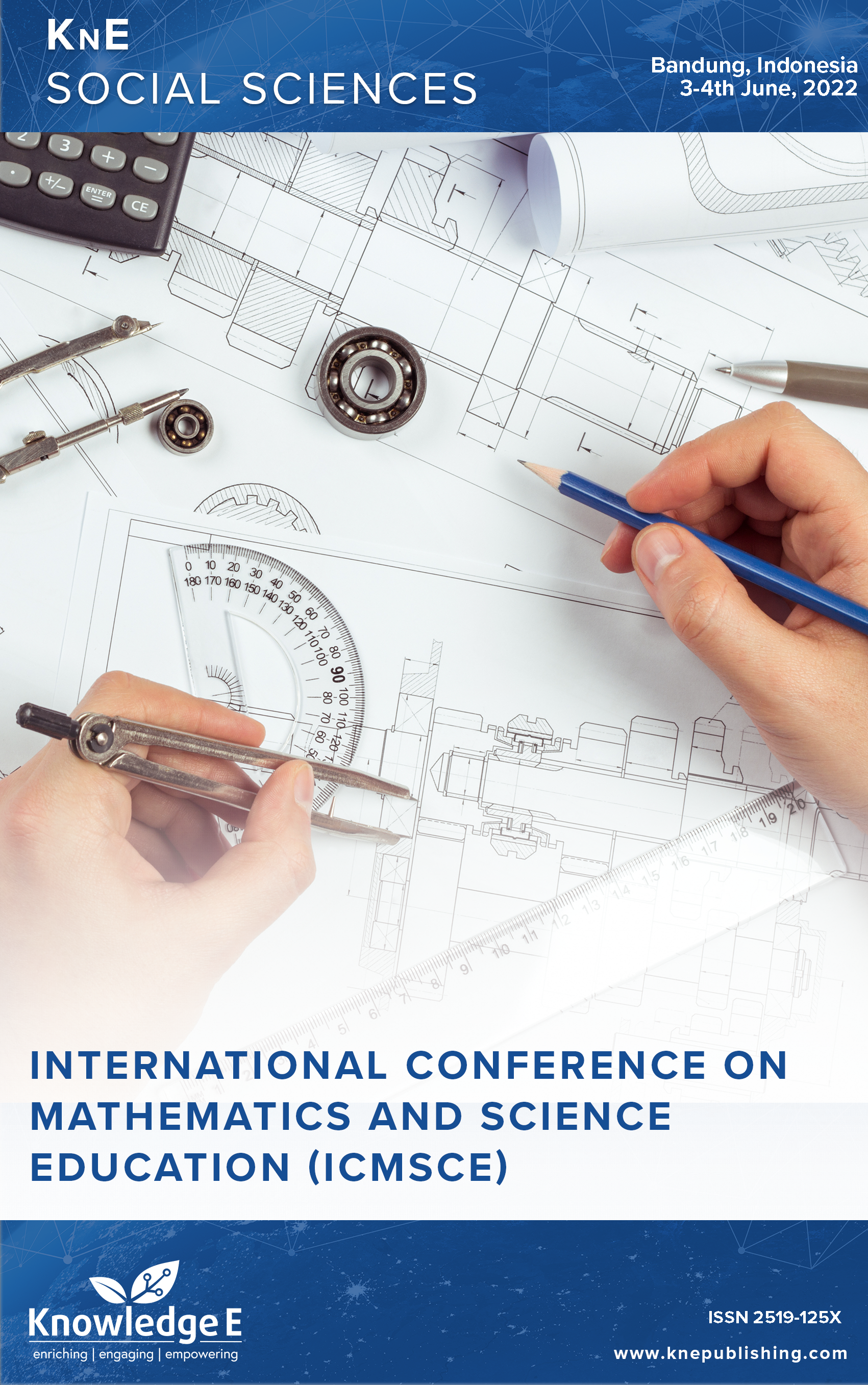Debriefing Program of Digital Literacy-oriented Teaching Material Development for Prospective Physics Teacher Students in the MBKM-Teaching Assistant Program
DOI:
https://doi.org/10.18502/kss.v9i13.16012Abstract
This study aims to develop a debriefing program for prospective physics teacher students in order to develop digital literacy-oriented learning tools through the independent learning campus program - teaching assistance program (MBKM - Teaching Assistance Program). One of the converted courses in the teaching assistant program is the development of learning tools. The debriefing model given to students is in the form of project-based debriefing. The Reeves design-based research (DBR) model was used as the research design, and the data were processed descriptively. A field needs analysis was conducted on students who had taught in schools through the analysis of learning aids and questionnaires. The participants in this study were 18 students who are prospective physics teachers and also members of the Teaching Assistance Program. The research stages are needs analysis, curriculum analysis, lesson plan design for material analysis, and learning assessment. All forms of projectbased assignments were directed at the development of digital literacy-oriented teaching materials. The results of the research were in the form of stages of debriefing, debriefing materials, and procedures for application debriefing programs. In addition, the results of the limited trial showed that students tend to have digital literacy skills in the medium category. They are already proficient with several applications in designing interesting and correct teaching materials.
Keywords: digital literacy, prospective physics teacher, MBKM-teaching
References
Saepudin J. “Kesiapan lembaga pendidikan tenaga kependidikan dalam menyiapkan guru profesional di IAIN Raden Intan Lampung.,” Edukasi : Jurnal Penelitian Pendidikan Agama dan Keagamaan. vol. 19, no. 2, pp. 220–35,. https://doi.org/10.32729/edukasi.v19i2.723. DOI: https://doi.org/10.32729/edukasi.v19i2.723
Arifian FD. “Peran Lembaga Pencetak Tenaga Kependidikan (LPTK) dalam mempersiapkan generasi emas bangsa.,” Jurnal Pendidikan dan Kebudayaan Missio. vol. 11, no. 1, pp. 26–38, 2019. DOI: https://doi.org/10.36928/jpkm.v11i1.133
Alvarado C, Cañada F, Garritz A, Mellado V. Canonical pedagogical content knowledge by CoRes for teaching acid–base chemistry at high school. Chem Educ Res Pract. 2015;16(3):603–18. DOI: https://doi.org/10.1039/C4RP00125G
Mansfield CF, Beltman S, Broadley T, Weatherby-Fell N. Building resilience in teacher education: an evidenced informed framework. Teach Teach Educ. 2016;54(1):77–87. DOI: https://doi.org/10.1016/j.tate.2015.11.016
Cheng YY, Chen LM, Liu KS, Chen YL. Development and psychometric evaluation of the school bullying scales: A Rasch measurement approach. Educ Psychol Meas. 2011;71(1):200–16. DOI: https://doi.org/10.1177/0013164410387387
Boechler P, Dragon K, Wasniewski E. Digital literacy concepts and definitions. Int J Digit Lit Digit Competence. 2015;5(4):1–18. DOI: https://doi.org/10.4018/ijdldc.2014100101
Pérez-Escoda A, García-Ruiz R, Aguaded I. Dimensions of digital literacy based on five models of development. C&E Cult Educ. 2019;31(2):232–66. DOI: https://doi.org/10.1080/11356405.2019.1603274
Eyal L. Digital assessment literacy—the core role of the teacher in a digital environment. J Educ Technol Soc. 2012;15(2):37–49.
Tohir M. Buku Panduan Merdeka Belajar - Kampus Merdeka., 2020.
Runnels J. Using the Rasch model to validate a multiple choice English achievement test. International Journal of Language Studies. 2012;6(4):141–53.
Adi Putra MJ, Widodo A, Sopandi W. “Science Teachers’ Pedagogical Content Knowledge and Integrated Approach,.” Journal of Physics: Conference Series. vol. 895, no. 1, p. 2017. https://doi.org/10.1088/1742-6596/895/1/012144. DOI: https://doi.org/10.1088/1742-6596/895/1/012144
Hamdu G, Sopandi W, Nahadi. “Debriefing program for prospective elementary school teachers in developing learning AIDS.” International Journal of Learning. Teaching and Educational Research. 2018;17(6):112–26. DOI: https://doi.org/10.26803/ijlter.17.6.7
Herrington J, McKenney S, Reeves T, O R. “Design-based research and doctoral students: Guidelines for preparing a dissertation proposal.” In: World conference on educational multimedia, hypermedia, and telecommunications. pp. 25–9, (2007).

